[Original by Ko IMANAKA, Sudan Project (June 11, 2020); Translated by E. Miyazaki /A. Taguchi]
In mid-May, an armed conflict broke out between Arabic herders called Hawazma and a Nuba ethnic group referred to as Angolo, in which at least 26 people died and left many wounded. Many civilians including a two-year-old boy and two of JVC staff’s relatives became victims.
JVC had long been supporting the people who evacuated from the conflict between the government of Sudan and anti-government forces in 2011. The region where those people live was also recently severely damaged. There is tension in the atmosphere: violent attacks with rifles and rockets, destruction of houses and infrastructure, plunder, and arson. I will report what is happening in Kaduqli.
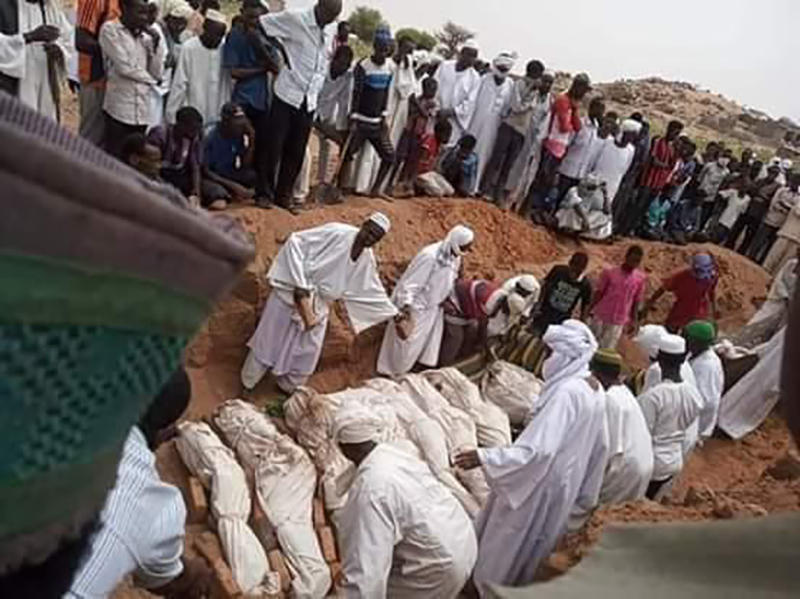
Burial of victims from the last armed conflict (from SNS).
The background of the armed conflict
On the morning of May 12th, we were at the JVC Kaduqli office preparing for a COVID-19 awareness activity we had planned to do. However, during the day of the activity, the residents of the community suddenly contacted us that they will be unable to attend due to trouble that had occurred between other ethnic groups. So, we decided to postpone it for the following day at that moment. That afternoon, a staff member of the Kaduqli office called us saying, “There is a firing attack in the market! Many people are fleeing towards the JVC office!” At that time, no one was sure what was going on. However, when we think about it now, there were already small conflicts occurring in each location even from some time ago.
| Date | Incidents |
|---|---|
| Mid-April ~ |
|
| Mon 5/11 | Conflict between both ethnic groups occurred again (it was said that mobile phone theft was the cause). |
| Tues 5/12 | Armed conflict in Kaduqli market occurs
|
| Wed 5/13 |
|
| Thurs 5/14 | Arson and plunder occurred, causing deaths (in Tilow region) and injuries. |
| Fri 5/15 | An RSF officer attacked civilians in Kaduqli city. 3 people died. |
| Sat 5/16 | Cease-fire agreement was made (between leaders of the residents). Evacuees were urged to return home, but evacuation continued. |
The sequence of events in Kaduqli is as written above. It is worth mentioning that these ethnic groups had been living together without conflicts for many years. If we take this into consideration, we can presume that what was initially an issue between individuals or families, had evolved into a conflict between the Hawazma and Angolo, then the Arabs and the Nubas. Another possible contributing factor why the conflict became more serious was the presence of militias who were included in the former government forces from the civil war as well as the many civilians who own weapons. It was also pointed out that SAF, which has many Angolos, and the militias of Hawazma, who belong to the RSF, joined the attacks which worsened the situation.
Damages in the community
The conflict that began in the Kaduqli market spread out all over and outside of Kaduqli. The Tilow evacuee region where many Angolos live had the most serious damage. JVC has long been supporting the Tilow evacuee region and built schools, water stations, and houses there. This year we are running a supplementary course as alternative education support for children who have lost the opportunity to receive a formal education.
However, hundreds of houses were plundered. Their food stock, livestock, and furniture such as beds were stolen, and the houses were set on fire thereafter. Also, there was plunder of social infrastructures such as water stations and the health center, and unexploded bombs were found, so currently it is difficult to enter the area.
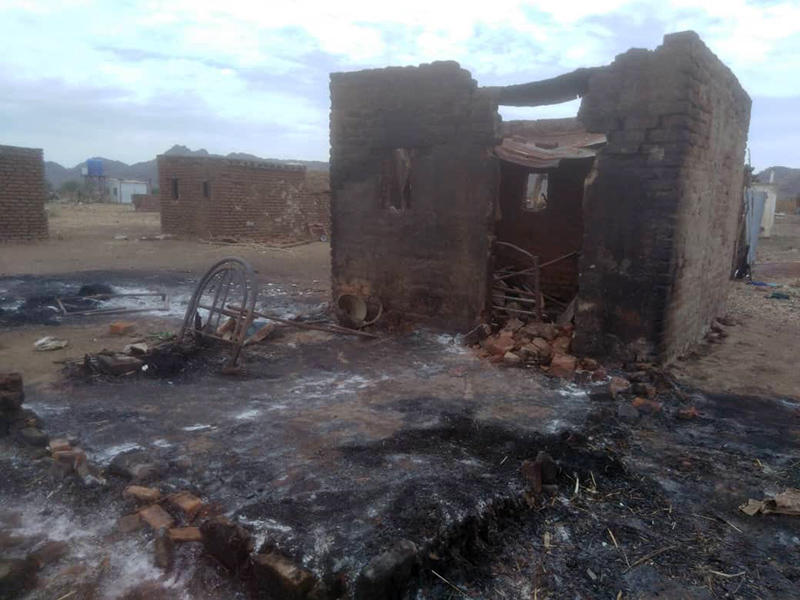
A burnt house after goods were stolen. JVC built 100 evacuees’ houses in 2015.
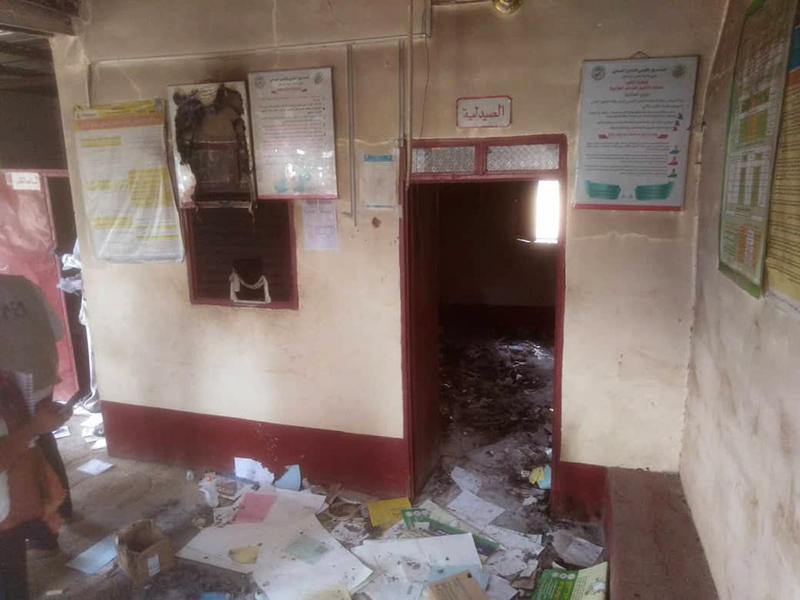
The health center which JVC was using to provide supplementary classes also suffered from plunder.
Where are the people now
This armed conflict created thousands of evacuees both within and out of Kaduqli. The people transferred to regions where many people of the same origin live, mostly to Hil Jadeeda and Tafri. There are evacuees from the previous conflict living in both regions which are also areas that JVC has been supporting.
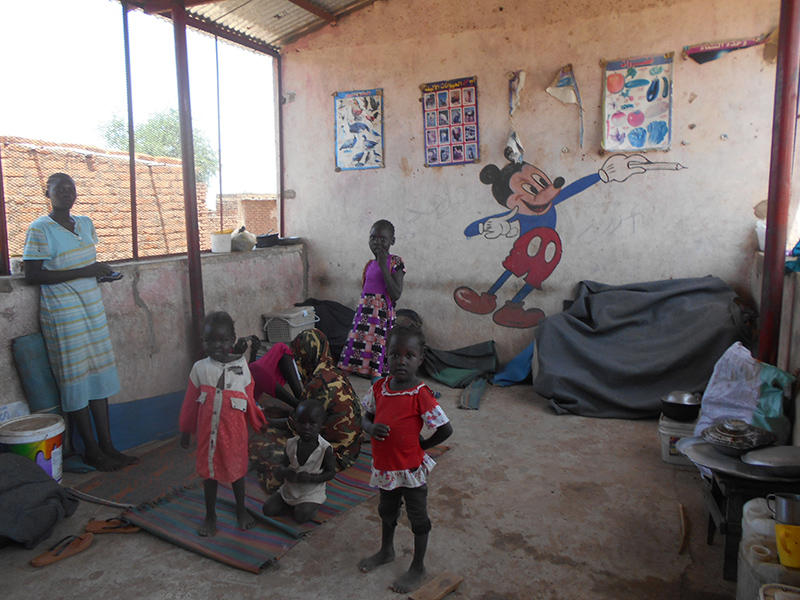
Evacuees who are staying at a kindergarten that was built by JVC.
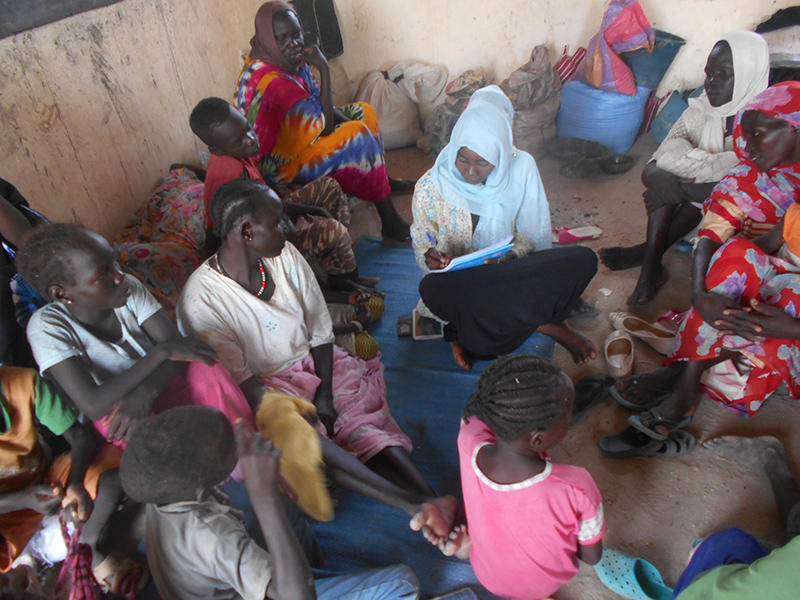
Evacuees who are staying at an elementary school that was built by JVC before. We are temporarily using this place for a supplementary class.
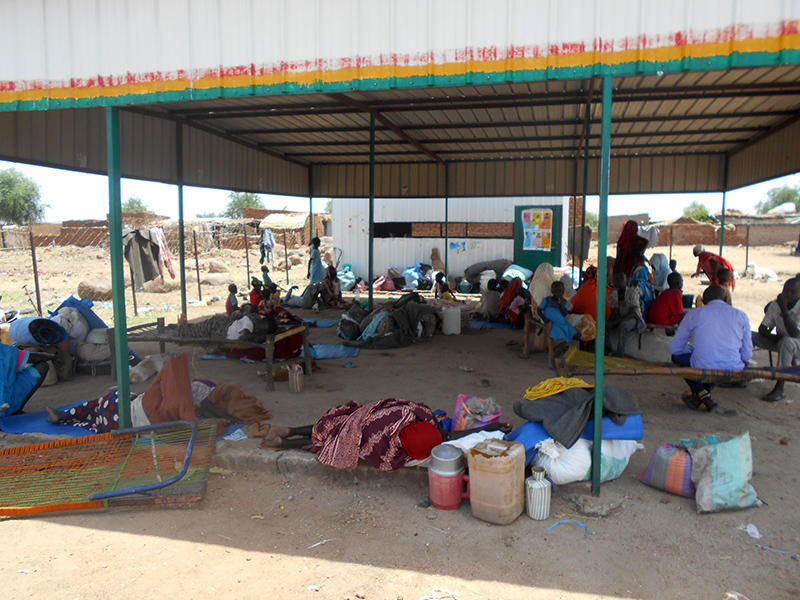
Those who cannot stay in kindergartens or schools due to lack of space need to stay in other areas which are almost completely outdoors.
There are about 160 families totaling 1100 evacuees living in the Hil Jadeeda region and many of them expressed concerns:
“I don’t want to go back to Tilow anymore. There are Arabs living nearby and I don’t know when I will be attacked.”
“I lost everything at home. The rainy season is starting soon, but I don’t know whether we can cultivate this year. I don’t have enough food supply either.”
Some residents are evacuating to their relatives, but there is a tragic reality that many are forced to transfer from one evacuation facility to another and have nowhere to go. Those who were forced to evacuate from the large-scale conflict in 2011 now need to flee and find another safe place again. JVC is providing emergency support to the evacuees by sharing information and cooperating with relevant ministries, NGOs and the United Nations organizations while holding hearing sessions with the evacuees. I will continue to report the conditions on this website.
Share This: